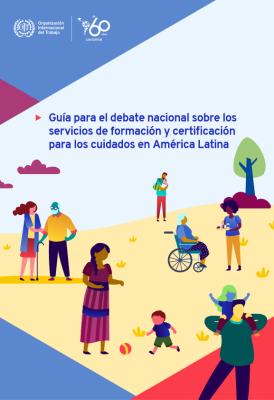Guide for the national debate on the incorporation or improvement of training and certification services for early childhood, elderly and people with disabilities care.
The International Labor Organization estimates that worldwide investment in universal child care and long-term care services will generate 280 million jobs by 2030 and another 19 million jobs by 2035, or 299 million jobs in total (ILO 2022a, 43). While this increase in the demand for care may represent important opportunities, the road ahead is marked by major challenges: on the one hand, gaps in care measures and services worldwide are very significant: they have left hundreds of millions of working people with family responsibilities without adequate protection and support. Thus, for example, in Latin America and the Caribbean, childcare services (for children between 0 and 2 years of age) continue to be concentrated in programs focused mainly on populations in conditions of poverty or vulnerability, and the deployment of long-term care services for the elderly and people with disabilities who require care or support is still very low (ILO 2022b, 45 and 58).
- Latin America and the CaribbeanTraining, certification and professionalizationRight to careCare economyPolicy and legal frameworksInternational organizationsComprehensive care systemsLink



